Gambling and the FIFA World Cup 2022 – Part 2
Gambling and the FIFA World Cup 2022 – Part 2 https://www.citizenme.com/wp-content/themes/corpus/images/empty/thumbnail.jpg 150 150 Shaun Richards https://secure.gravatar.com/avatar/a8ce564a017acc0ef1de7902096f812d?s=96&d=mm&r=gGambling and the FIFA World Cup 2022
Part 2
In the previous part of this case study, we showcased some findings about UK Citizens betting on the FIFA World Cup 2022 versus those who won’t bet. A key discovery was 44% are classified as moderate or severe in their experiences towards gambling, when assessed by the Problem Gambling Severity Index (PGSI).
The Problem Gambling Severity Index (PGSI) is a measurement used in the Health Survey for England, the Scottish Health Survey, and the Welsh Problem gambling Survey respectively. The PGSI was developed by Ferris and Wynne (2001) specifically for use among the general population rather than within a clinical context. It helps to determine the potential level of risk a person has to gambling.
With the men’s FIFA World Cup 2022 happening at the time of writing, we wanted to find differences in habits and personality types among World Cup bettors in accordance with the PGSI’s different gambling consequence index.
What did we do?
Using the CitizenMe Marketplace, CitizenMe and Joshua Weller, an expert in the study of risk behaviours at the University of Leeds, conducted a case study looking at Gambling and the FIFA World Cup 2022 among users (Citizens) of the CitizenMe app. The CitizenMe app gives Citizens the ability to gather and share their own data in a fully consented and anonymous way via questions and answers. Citizens are able to see their personal human data in one place – on their smartphone – and be in control of how that data is used.
When asked, some 970 UK Citizens said they would be watching the FIFA World Cup 2022. Of these, we filtered out those who had never gambled in their life, leaving 724 UK Citizens. We then reviewed answers from those who said they would gamble on this World Cup, leaving 312 UK Citizens.
These 312 UK Citizens completed the 9 questions Problem Gambling Severity Index (PGSI) psychometric test to understand their propensity to gamble. The PGSI scoring for these 312 bettors produced the following splits:
32%
Citizens who gamble with no negative consequences (No Consequence)
23%
Citizens who experience a low level of problems with few or no identified negative consequences (Limited Consequence)
16%
Citizens who experience a moderate level of problems leading to some negative consequences (Moderate Consequence)
28%
Betting with negative consequences and a possible loss of control (Severe Consequence)
What we found?
Here are 7 key trends found between the different gambling consequence groups:
1. The higher the consequence of gambling, the lower the level of Conscientiousness in CitizenMe’s OCEAN Big 5 personality test:
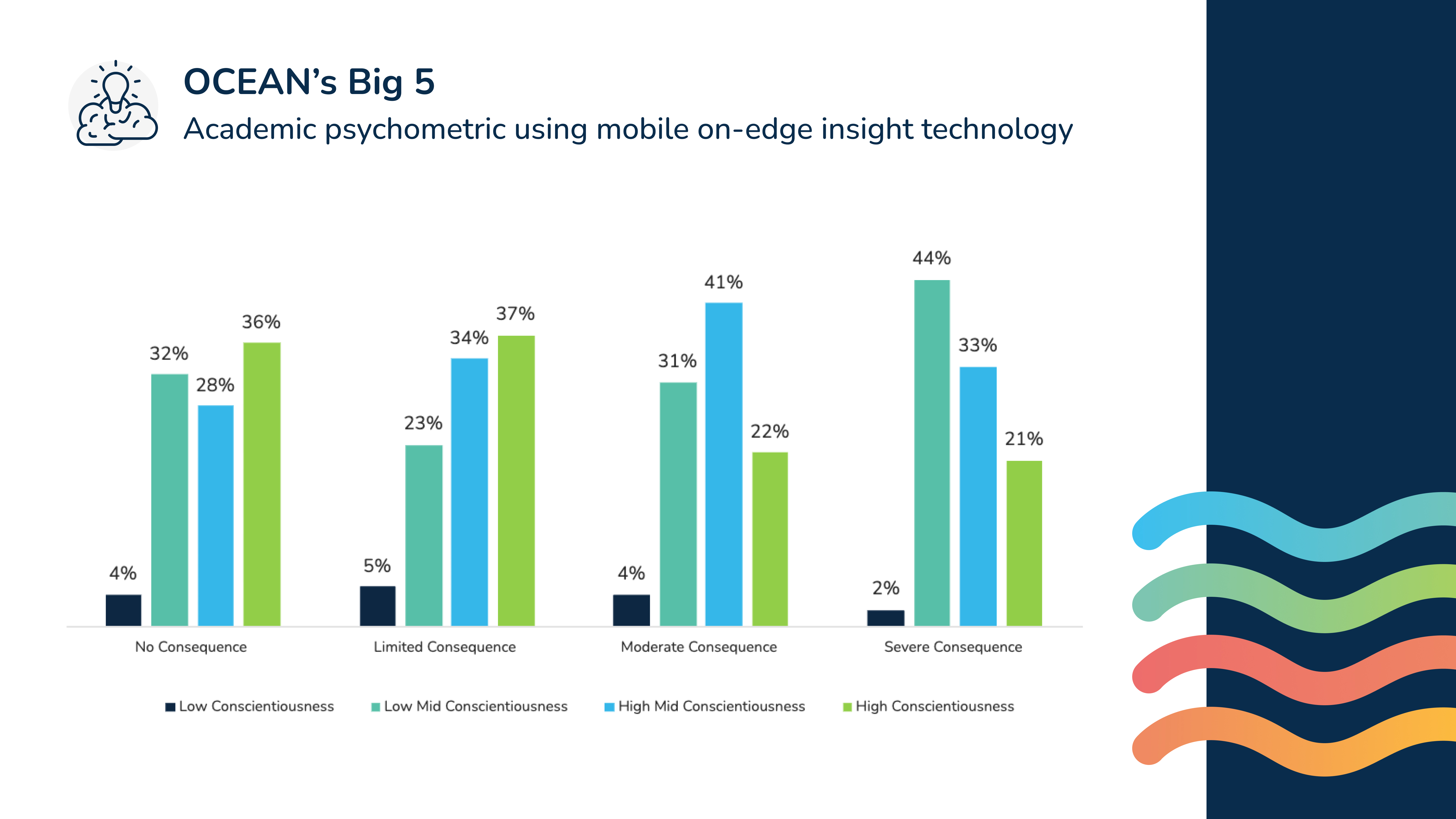
2. There is a linear trend indicating that the greater the consequence, the more likelihood for ADHD tendencies:
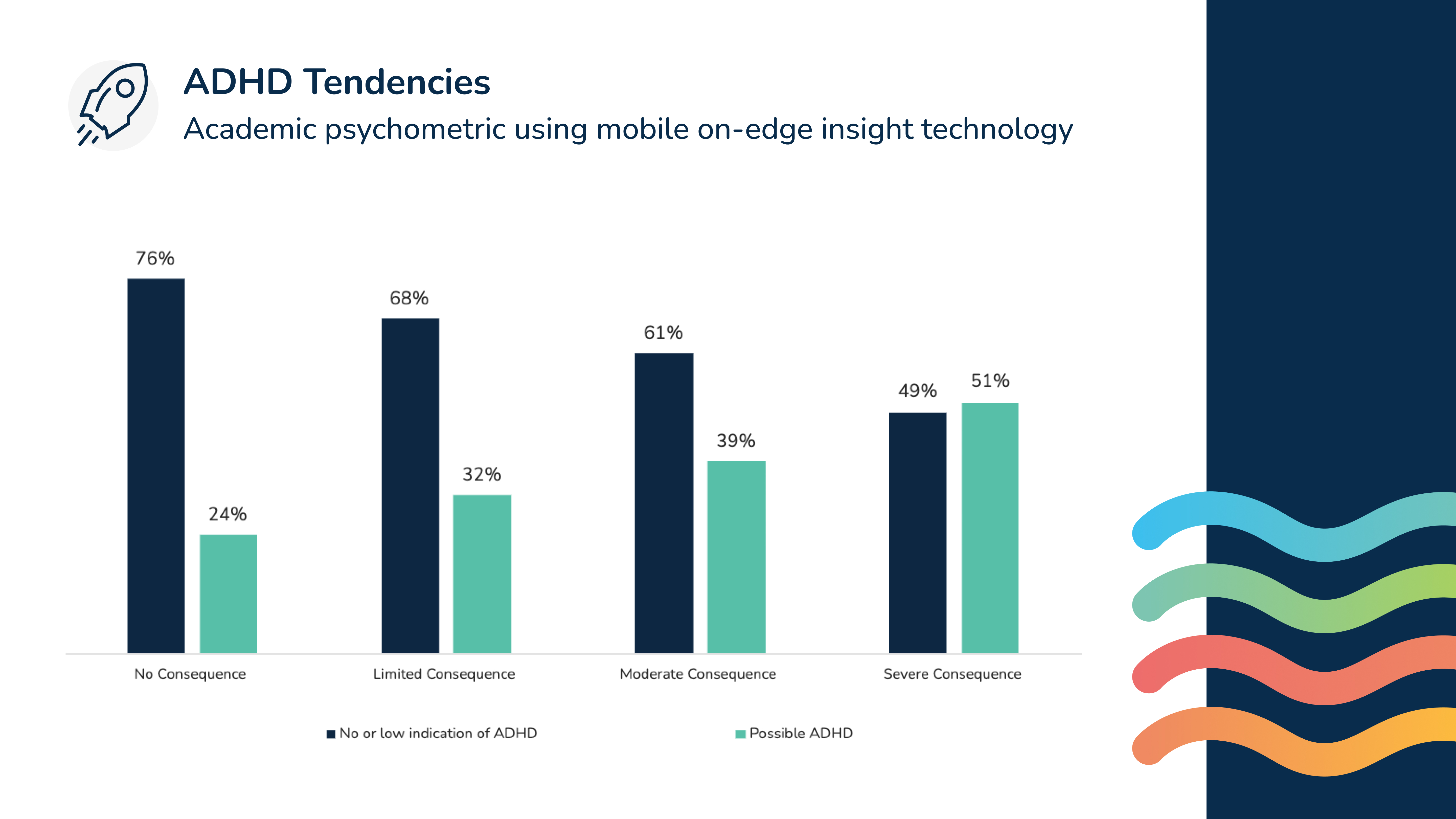
3. Thrill Seeking personality trait is significantly higher among the moderate and severe consequences groups:
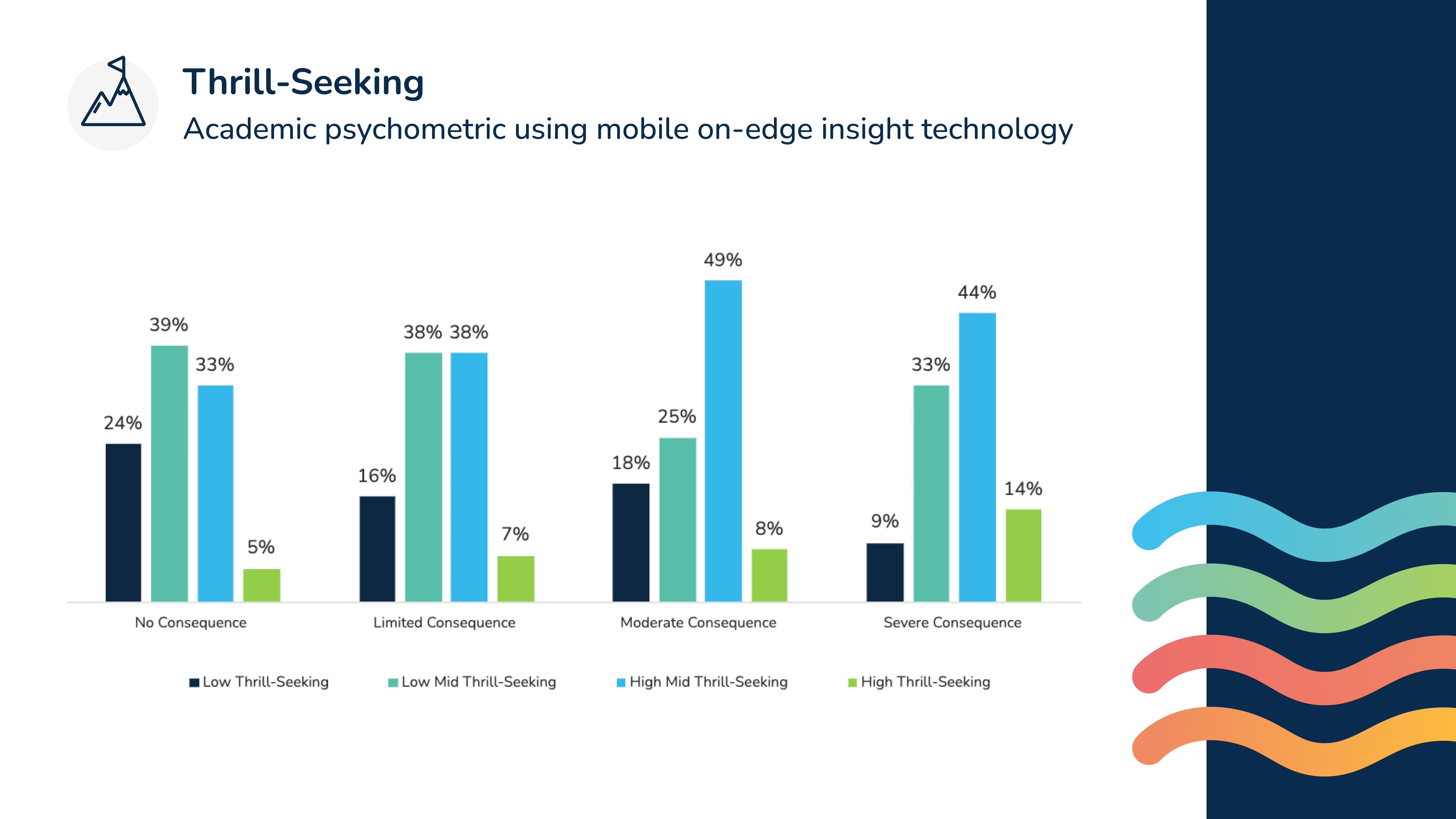
4. The group with the most severe gambling consequence is more likely to have gaming apps on their smartphone:
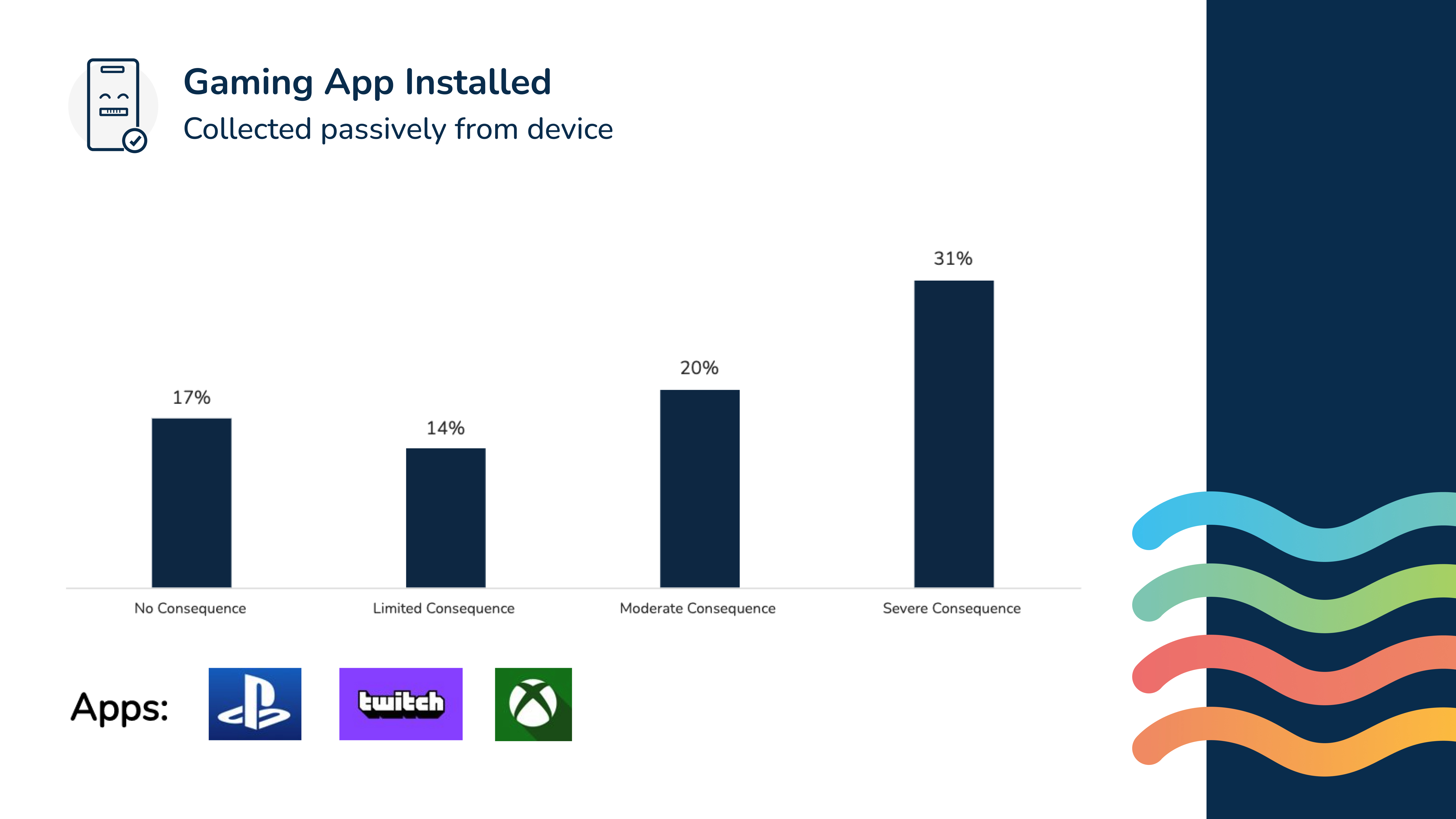
5. As the gambling consequence increases, so do the number and price of bets on the World Cup 2022:
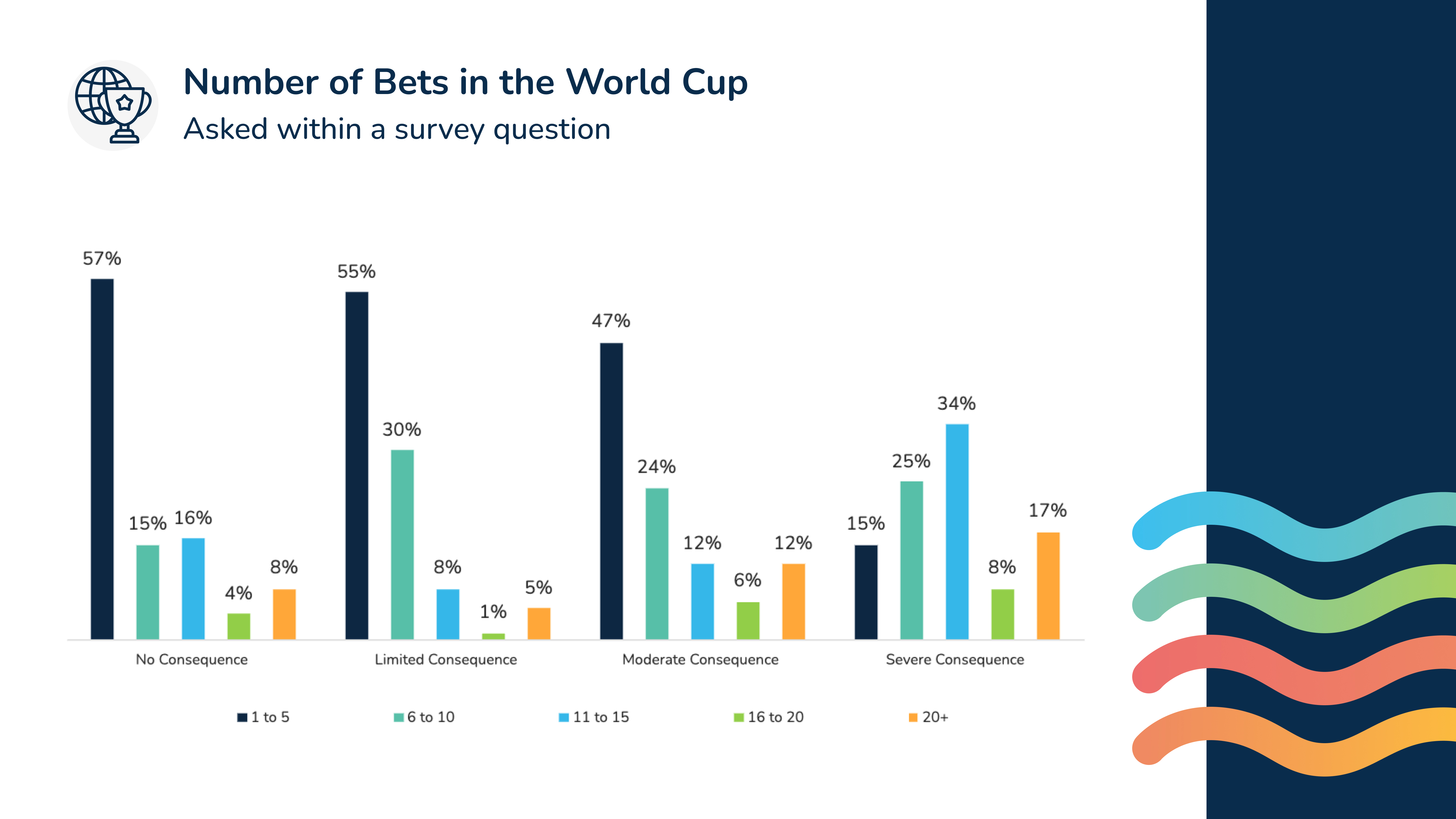
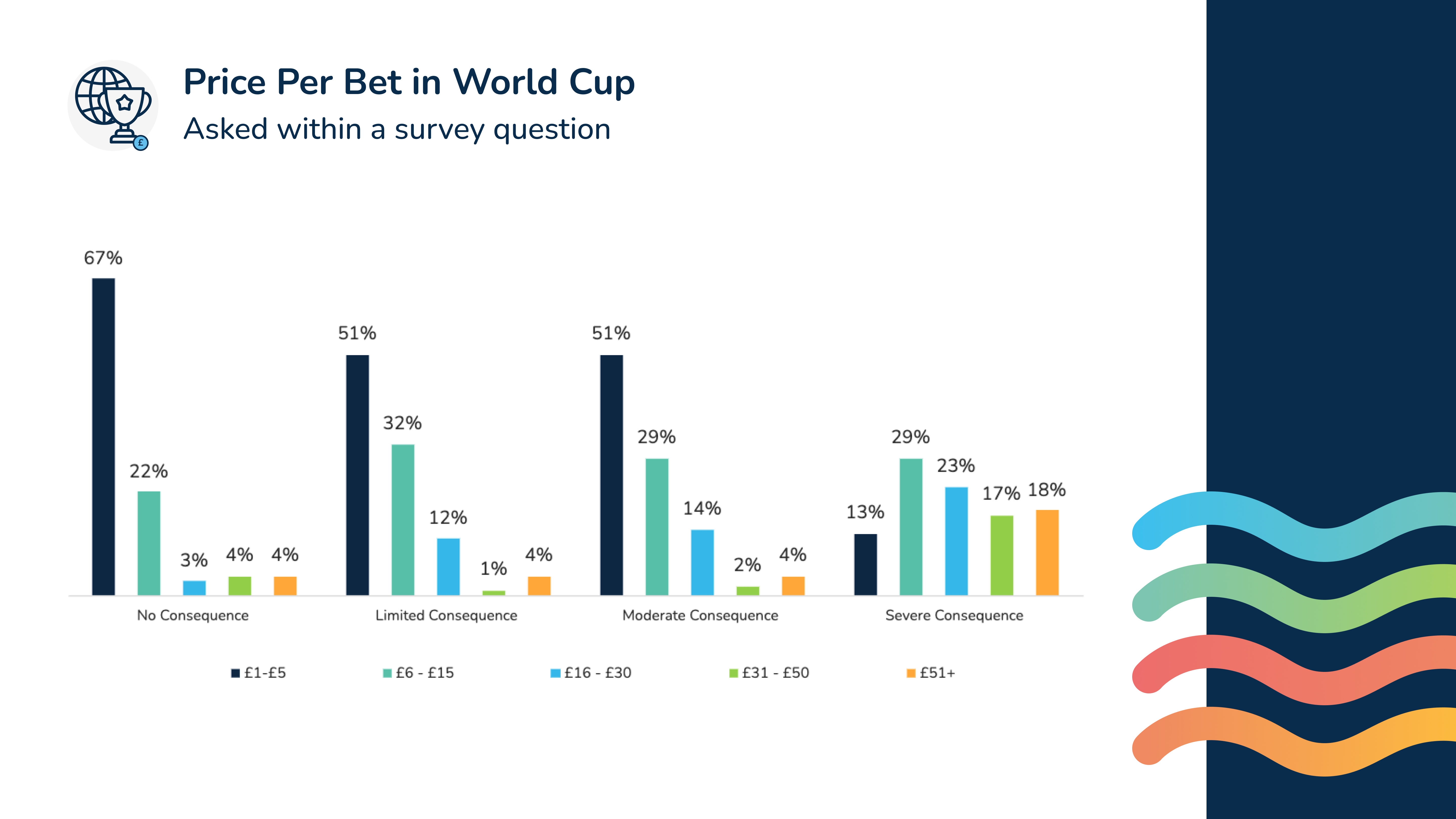
World cup icon by Syawaluddin from Noun Project
6. Interestingly, the severe consequence group are less likely to do their betting solely online compared to the other groups:
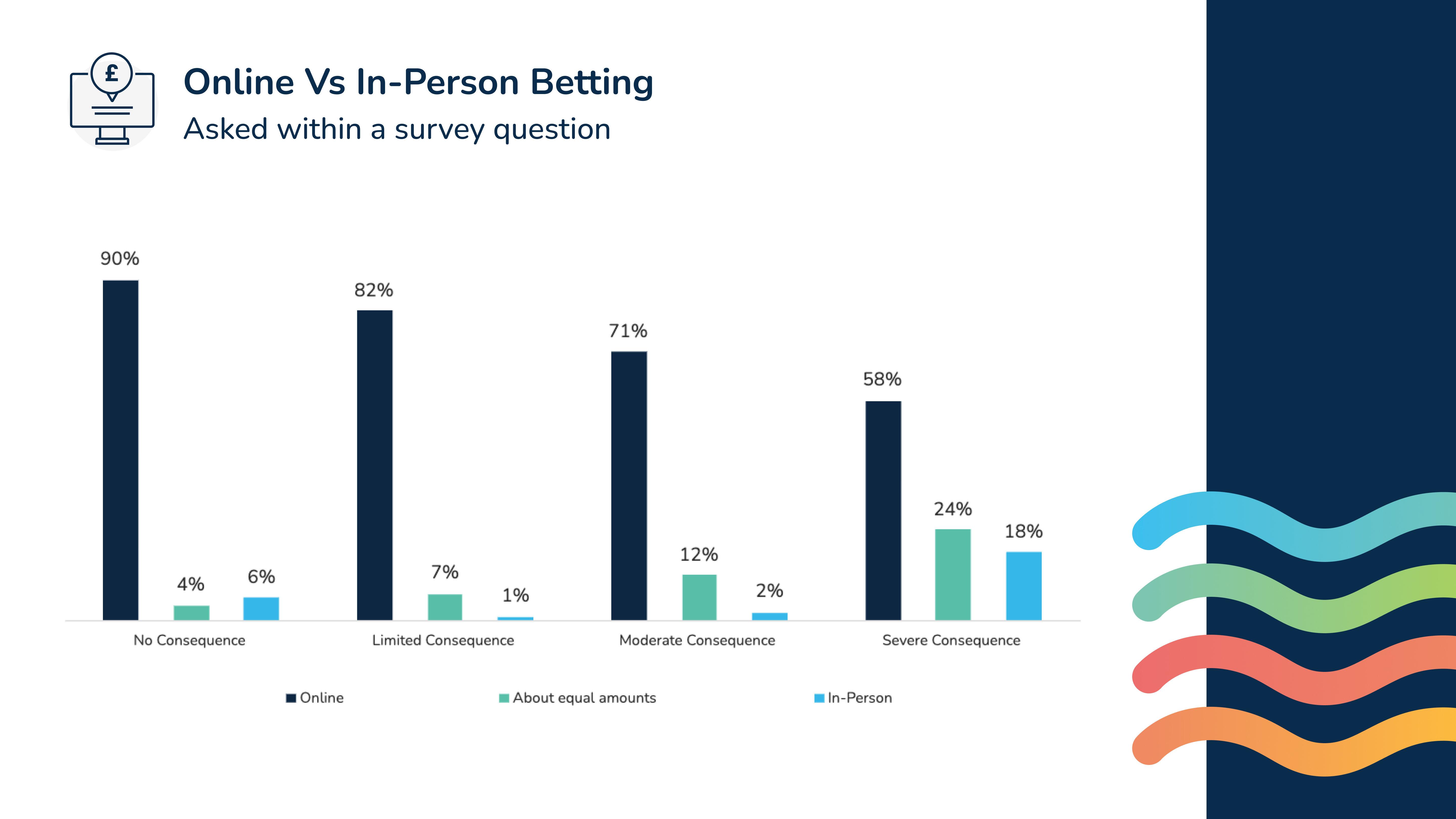
7. Finally, and probably most predictably, there is a building trend that the World Cup has facilitated an increase in betting habits:
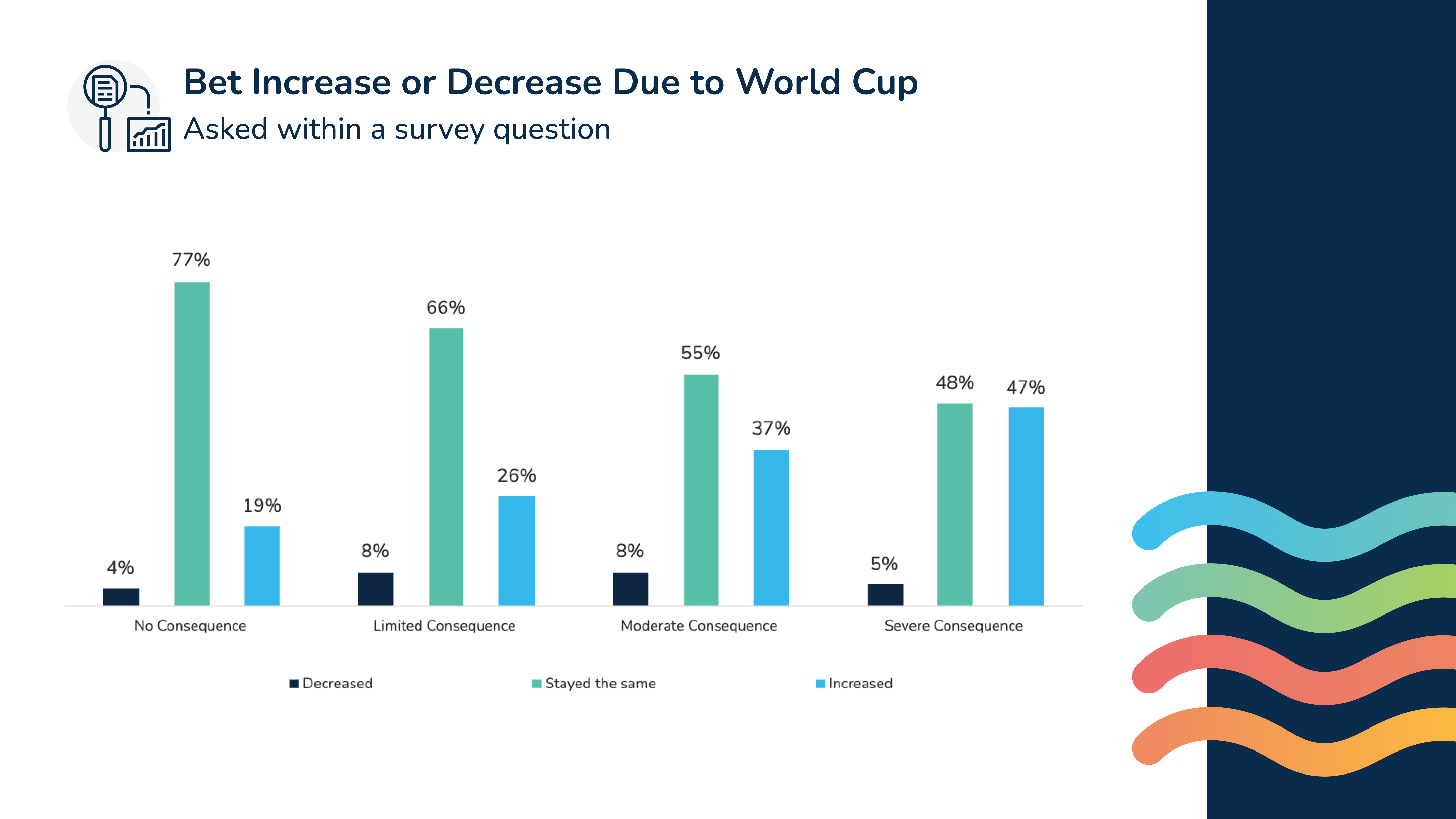
Is the collective more impactful than the individual?
Working in conjunction with an expert in the study of risk behaviours, Joshua Weller from the University of Leeds, CitizenMe wanted to understand if combining the key personality traits found in this study with Citizens’ PGSI scoring could provide a more rounded view of a Citizen.
Firstly, we adopted a person-centred approach in order to examine the degree to which we could identify groups of individuals who share similar constellations of OCEAN Big 5 traits. We conducted a latent profile analysis (LPA, Collins & Lanza, 2013), using each of the OCEAN Big 5 traits as indicator variables for profiling. This analysis uncovered three roughly equal and distinct groups that relate to an increase in the PGSI scoring:
Disinhibited group
37.6% of the World Cup bettors fit this profile
- Lower agreeableness
- Lower conscientiousness
Mean PGSI score of 7.7
Socially Inhibited
33.9% of the World Cup bettors fit this profile
- Higher neuroticism
- Lower extraversion
Mean PGSI score of 3.9
Well-Adjusted group
28.5% of the World Cup bettors fit this profile
- Higher agreeableness
- Higher conscientiousness
- Lower neuroticism
Mean PGSI score of 3.9
We then tested how these groups may differ in terms of their gambling behaviour. We found that the Disinhibited group’s average total PGSI score was nearly double (7.68) that of the other two groups: (3.91) and (3.9) for the Well-Adjusted and Inhibited groups respectively.
Additionally, those in the Disinhibited group reported spending more on gambling within the past 12 months, while also expecting to spend more on World Cup bets than the other two personality groups. They were also more likely to report gambling as a means for reducing stress.
Although the first analysis showed interesting results, we wanted to see if we could go a step further. So in a follow-up LPA analysis, we focused on characteristics that have been associated specifically with problem gambling and, more generally, psychological dysregulation (Kirisci et al., 2009; Lauriola & Weller, 2018; McLaren et al., 2011). We included ADHD tendencies and Thrill Seeking scales along with the OCEAN Big 5 traits:
Disinhibited group
25.1% of the World Cup bettors fit this profile
- Lower agreeableness
- Lower conscientiousness
- Higher ADHD
- Higher Thrill Seeking
Mean PGSI score of 8.4
Normative group
36.9% of the World Cup bettors fit this profile
- All measures are close to the mean average
Mean PGSI score of 5.3
Well-Adjusted group
38.1% of the World Cup bettors fit this profile
- Higher agreeableness
- Higher conscientiousness
- Lower neuroticism
- Lower ADHD
- Lower thrill seeking
Mean PGSI score of 3.3
By adding in these additional personality traits, it helped to provide a rising trend within the PGSI scoring. Again, the Disinhibited group reported spending more on gambling in the last 12 months than the other two groups, and also reported that their gambling frequency has increased specifically because of the World Cup.
This latter analysis clearly illustrates the power of combining a number of psychometric variables together rather than investigating the individual elements; different personality traits can be profiled in order to determine the potential level of risk a person has to gambling and its gambling consequences.
Conclusion
The Problem Gambling Severity Index (PGSI) is a powerful tool to help index the severity of consequences to gambling among those who like to make a bet or wager.
There are some clear trends showing that the higher up on the index you are, the more likely you have certain personality traits – Lower Conscientiousness, Higher Thrill Seeking and ADHD tendencies. Some habits are also linear as Citizens move from one consequence group to another. When we bring them all together, you can see how each variable contributes to an overall profile of a person’s gambling habits.
Combining metrics on personality and habits with empirical tests like the Problem Gambling Severity Index (PGSI) can move the needle on understanding Citizens to a deeper level, and truly help to understand what makes them tick. Hopefully, this may help to facilitate change in a behaviour considered to be a negative influence on society when in its extreme.
Perhaps this is something you wish to investigate further yourself. You can do this all through the CitizenMe Marketplace platform. Check out how to do this here:


